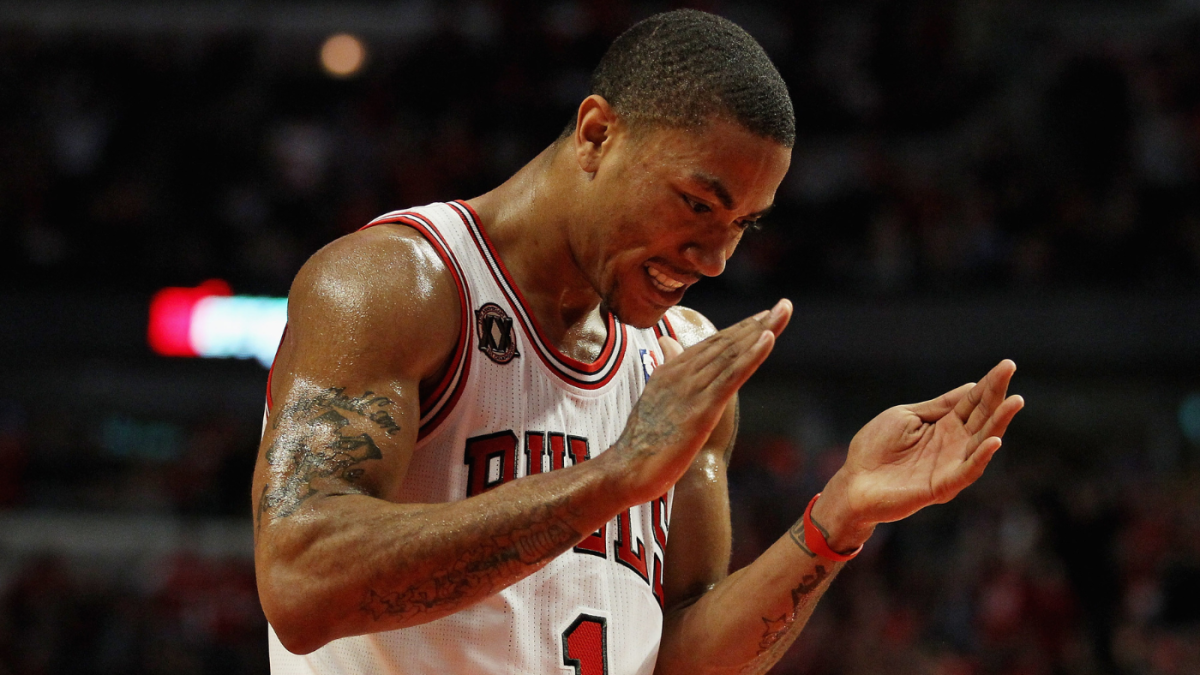
Derrick Rose: A Hall of Fame Legacy Defined by More Than Stats
Derrick Rose's retirement marks a poignant chapter in basketball history, one that ignites conversations about his legacy and the implications of his Hall of Fame candidacy. On the surface, Rose’s career statistics may not immediately scream "Hall of Famer." After all, he scored fewer points than players like Harrison Barnes and averaged less than other prominent names in the league. Furthermore, his All-Star appearances were limited to just three, and his scoring efficiency often came under scrutiny. Yet, there’s a compelling narrative beneath these numbers that speaks volumes about not only Rose but also the sport itself.
Rose's career arc is both remarkable and tragic. He is the youngest player to ever win the NBA Most Valuable Player award, achieving this honor at just 22 years old in the 2010-2011 season. That singular accolade automatically places him in Hall of Fame discussions, a fact evidenced by the reality that nearly every MVP in history has found their way into basketball's hallowed halls—except for a few current players and Rose himself. His trajectory was poised for greatness until an ACL injury derailed his momentum during the playoffs the following year, forcing him into a long and difficult rehabilitation. The injuries he faced not only altered his career path but also limited his ability to fulfill the potential many believed he possessed.
Also Read:- Kamindu Mendis Shatters 147-Year-Old Record in Test Cricket History
- Shoppers Beware: Convenience Store Prices Surge, Costing You More
When comparing Rose's career to other Hall of Fame inductees, one can find parallels with players like Bob McAdoo, who also won an MVP at a young age but faced a shortened prime. McAdoo’s individual accolades were bolstered by championships later in his career, yet he had to wait a decade post-retirement for his Hall of Fame induction. Similarly, while Rose’s peak was unfortunately brief, he will likely receive his recognition sooner rather than later. The Basketball Hall of Fame has a history of welcoming players whose careers might not have met traditional standards of longevity or statistical dominance, yet Rose’s MVP win gives him an edge in this selection process.
The Hall of Fame's criteria often seem perplexing, allowing players with modest career achievements to be enshrined. Consider Mitch Richmond, who, despite never averaging 26 points in a season and competing in only a handful of playoff games, still earned his spot. Derrick Rose, during his peak, significantly surpassed such benchmarks, elevating him above many who have been inducted. The Hall’s inclusion of various players categorized as "very good" rather than "great" opens a path for Rose, who undeniably reached a level of fame, especially for his impact on the game.
Yet, it's essential to acknowledge that MVP awards in basketball carry a weight that transcends mere statistics. Unlike football or baseball, where contributions can be more distributed among teammates, basketball offers a platform for players like Rose to influence games on a grand scale. He was the reason why players like LeBron James didn't secure five consecutive MVP awards, a testament to his historical relevance and significance.
As we reflect on Rose’s journey, it becomes clear that his Hall of Fame candidacy speaks to broader questions about the nature of greatness in sports. The inclusion of players who may not have sustained excellence raises the question of what it truly means to be "Hall of Fame-worthy." Derrick Rose’s case exemplifies this complexity. His story isn’t just about the numbers; it’s about the indelible mark he left on the sport during his peak years and the way his struggles resonated with fans and players alike.
So, Derrick Rose will undoubtedly find his place in the Hall of Fame, representing not just his achievements but also serving as a symbol of perseverance in the face of adversity. His legacy will continue to spark debate and inspire future generations of athletes, illustrating that fame is not solely defined by longevity or statistics but by the profound impact one has on the game.
Read More:

0 Comments